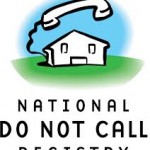This change can’t come soon enough. The Social Security Administration (SSA) may make it easier to replace a child’s Social Security number if the child has been a victim of identity theft. No one is quite sure how their kid’s Social Security number gets stolen, but it is a significant problem. The Federal Trade Commission (FTC) says a 2012 study found that children in 2.5 percent of U.S. households had their identities stolen.
I’ve repeatedly done stories about the issue and it’s always frustrating for the parents. A Newark mom I interviewed discovered her eight-year-old’s Social Security number was stolen after she filed her income tax return. She was told someone else had already claimed him as a dependent. And then a tedious bureaucratic dance began as she tried to correct the error and get his Social Security number changed. She wanted to correct the record so that she could claim him as a dependent and she also worried about the long-term impact on his credit. In addition to falsely claiming the boy as a dependent the scammer, or scammers opened credit cards in his name. They charged thousands of dollars and never paid the bills. They were never caught.
But the mom couldn’t get action from the Social Security Administration. It refused to change his Social Security number because the mom couldn’t prove “the child was harmed.” Now under the new proposal a Social Security number of a child under 13 could be changed if the child is an identity theft victim. The Federal Trade Commission wants the SSA to go further and raise the age to 17 and also make sure that parents and guardians are allowed to request the change for their children. The FTC said recently, “Many children who are victims of identity theft before age 13 may not know they have been victimized until they are older and applying for credit or an apartment.”
In the meantime it’s a good idea to keep an eye out for potential problems.
Take Action In Advance
It’s best to take action in advance and keep an eye on your children’s credit reports. You can get them for free three times a year at AnnualCreditReport.com. Do not pay anyone to pull a credit report.
Look for charges that don’t make sense and for a notation of credit cards that you never opened.
What To Do
If you discover your child’s Social Security number was stolen:
1. Contact the three national reporting bureaus: Experian, Equifax and TransUnion. Write letters to explain that the number was stolen and ask for a manual check of the report.
They may ask for:
- Your child’s birth certificate that lists the parents
- Your government-issued identification. This can be a driver’s license, military identification or some form that shows you are the parent.
- Your proof of address. This can be a utility bill, a credit card statement or other official piece of mail sent to your address.
2. Ask the credit bureaus to remove all accounts, collections and inquiries about your child’s Social Security number. Keep copies of the letters and documents that you send.
2. Ask one of these companies to place a fraud alert on your child’s account. That company will contact the other two.
3. File a fraud report with the Federal Trade Commission (FTC), or call 877-438-4338.
Again, this is not easy to fix. And that’s why it’s important to be proactive and check credit reports for fraud and errors.
Tell us your story
Tell us your story if you or your children have been victims of identity theft.
Like us on Facebook and Follow us on Twitter.






